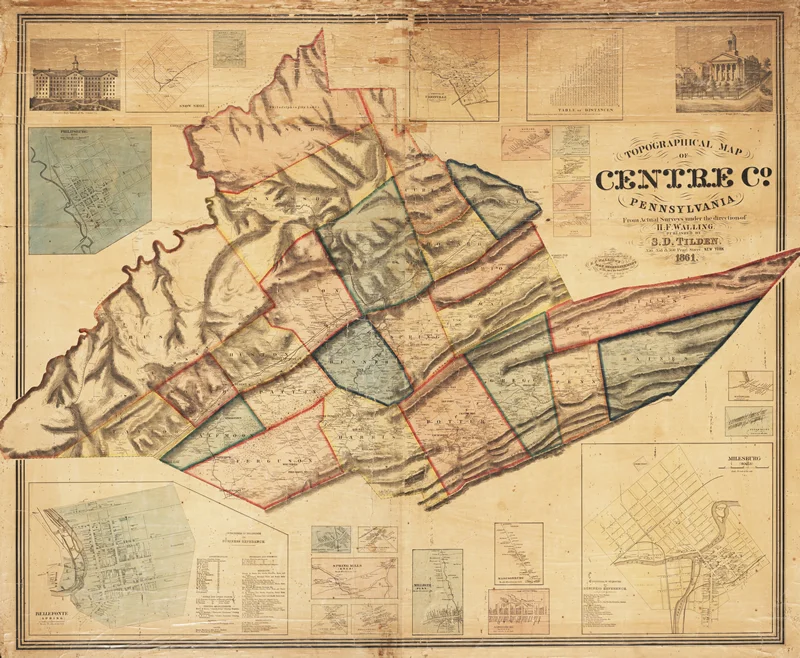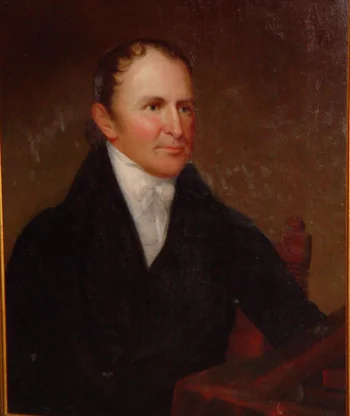Federalist #5 - John Jay - Federalist Fridays
Ah yes, another Federalist Friday.
Today, we read the last installment from John Jay (at least for a while). After writing this Paper, Jay would fall ill and only participate one more time.
Once again, Jay discusses how the Constitution will protect the States from foreign force and influence, this time focusing on the States themselves treating each other like separate nations.
If you missed last weeks, you can catch up here. If you’d like to start form the beginning, click on Federalist #1.
Federalist #5
John Jay
November 10, 1787
John Jay
Well, here we are again. For the fourth straight week, we’re reviewing how John Jay believes the Constitution will better protect the United States from foreign force and influence.
Jay defends his repetitiveness early in this article by stating, “This subject is copious and cannot easily be exhausted.” I’ll be honest, I disagree. Personally, I’ve tired of this topic. (OK, that’s a joke, I can read about this stuff all day).
Whether or not foreign force and influence still excites you, John Jay gets sick after this article and he only writes one more, which we will not be covering for several months.
Now I’d like to point out that one of the reasons I came up with the idea of reviewing the Federalist Papers was to give John Jay a bit more time. He was rarely at one of the important turning points during the Revolutionary War, but his work behind the scenes cannot be understated.
I implore everyone reading this to take some time out of their lives and brush up on John Jay.
The Same Subject Continued
While John Jay’s earlier Papers discuss how the Constitution can protect the United States from getting into wars with foreign nations for real or pretended causes, Federalist #5 discusses how the Constitution can protect the States from warring with each other.
Jay brings up the example of Great Britain and uses this as a spring board to demonstrate his argument throughout the Paper. He points out how, for centuries, England, Scotland and Wales were separate nations. They warred frequently with each other which slowed down their progress.
Only after these three nations came together under the banner of Great Britain, Jay argues, did they blossom into a world power, more concerned with external threats from the Continent than from within.
In Jay’s opinion, the Constitution would bring the same benefit to the United States.
Warring Neighbors
Jay goes on to discuss how denying the Constitution would leave the individual States competing with each other as separate nations might do.
Jay warns that, thought they may be friendly now:
“Should the people of America divide themselves…envy and jealousy would soon extinguish confidence and affection, and the partial interests of each confederacy…would be the only objects of their policy and pursuits. Hence, like most other BORDERING nations, they would always be either involved in disputes and war, or live in the constant apprehension of them.”
If the States do not unite under one Federal Government, Jay implies, they would soon begin to fight with one another. Even worse, when individual States were not at war, they would live with the fear that a war could break out at any time.
The Invading North
Since, “The North is generally the region of strength,” it would not be surprising to Jay if they, “might often be tempted to gather honey in the more blooming fields and milder air of their luxurious and more delicate neighbors.”
This is an extremely telling quote.
First of all, these articles are directed toward the people of New York. While most people today would consider New York as ‘The North,’ it was, at the time, very much the middle.
This seems at first glance to be a warning to New Yorkers that New England might become extremely powerful and do some invading.
Additionally, the authors of the Federalist Papers knew they were being read nationwide. This line might be heard by the people of the South as, ‘if New York doesn’t come for you, New England will.’
Although this sounds like a kindly worded threat, from what we know about John Jay and his personality, it was simply a strenuous warning. But coming from such a respectable source, many readers would have felt the fear just the same.
An Argument Lost
With the benefit of hindsight, we can look at Federalist #5 and find something extraordinary in its arguments.
We can see how wrong they were.
The Constitution would be passed, and the States would form a Union. However, just seventy years later, the children of these very Founders would fight in the Civil War.
Despite Jay’s hopes for the Constitution, partial interests would still arise. From time to time, throughout the history of the United States, neighboring States would act more like bordering nations than one united country.
They have viewed, and at times still do view, each other with apprehension.
I am going to take this opportunity to once again recommend the book ‘John Jay’ by Walter Stahr.
It is one of my favorite biographies of a Founder and I cannot recommend it highly enough. You can pick up a copy through the Amazon affiliate link below which will not increase the price you pay but will help support this site.
If you are new to this site, make sure you subscribe to the email list to receive a new Founder (or Federalist) every day.






